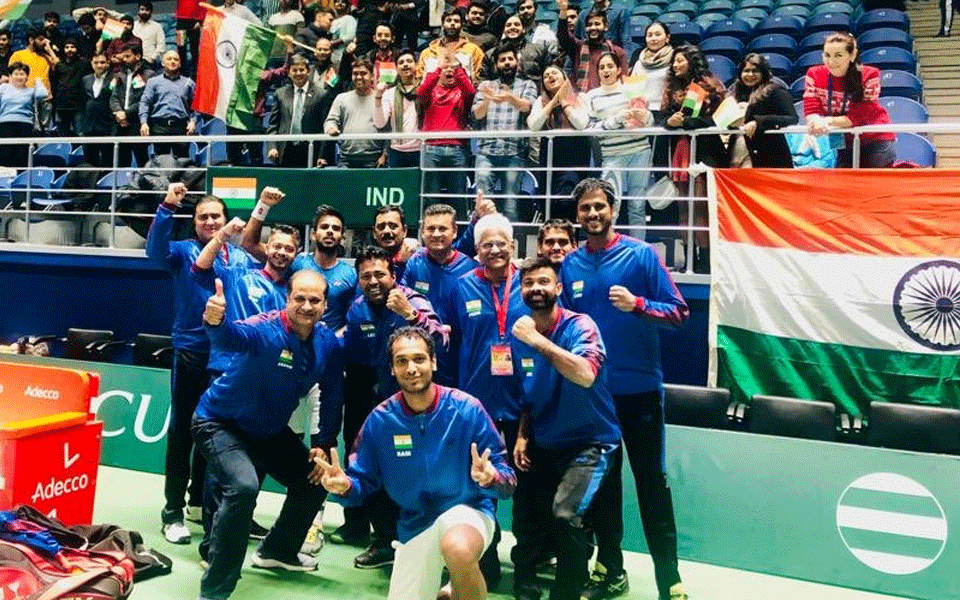Nur-Sultan: Veteran star Leander Paes bettered his own Davis Cup record by winning his 44th doubles match along with debutant Jeevan Nedunchezhiyan as India took an unassailable 3-0 lead against Pakistan with victory in the third rubber, here on Saturday.
Pakistani teenagers Mohammed Shoaib and Hufaiza Abdul Rehman were no match for the Indian combination of battle-hardened Paes and Jeevan, who needed just 53 minutes to win 6-1 6-3.
Paes last year had become the most successful doubles player in the history of Davis Cup when he won his 43rd doubles match, surpassing Italian great Nicola Pietrangeli during the tie against China.
Paes had taken 56 ties for his 43rd win while Pietrangeli competed in 66 ties and won 42 doubles matches. Paes' record of 44 wins is unlikely to be broken anytime soon as except him, none of the active doubles player feature in the top-10 list.
Belarusian Max Mirnyi, at number three, has 36 wins but has not played on Tour since 2018.
Hufaiza and Shoaib began with a hold of serve in the opening game of the match but the Indians broke the teenagers in the third game before holding their own for a 3-1 lead.
Paes and Jeevan then took control of the match with another break of serve in the fifth game. Jeevan served a double fault at 30-15 but the Pakistanis could not put pressure on their rivals as India zoomed to a 5-1 lead.
Serving to stay in the set, Shoaib was down 0-40, giving India three chances to close the opening set. Paes and Jeevan grabbed the second.
The Indians had a few chances to break their rivals early in the second set but the Pakistani duo held its nerves to save them. There was some fight in the second set, which was locked 3-3.
Paes and Jeevan got a break in the eighth game to take a 5-3 lead and the former served out the match in the next.
Let the Truth be known. If you read VB and like VB, please be a VB Supporter and Help us deliver the Truth to one and all.
Dubai: Smoke was seen rising from an area near the United States Consulate in Dubai, according to witness accounts cited by Reuters.
There was no immediate official confirmation on the extent of damage or whether there were any casualties in the incident.
Earlier, the US embassy in Riyadh, Saudi Arabia’s capital, was also attacked. Authorities reported damage to the premises, but no casualties were recorded.
The developments come amid heightened tensions in the region, with Iran continuing to target US interests in the Middle East following deadly attacks launched on Saturday by Israel and the United States.
Near US embassy in Dubai pic.twitter.com/z5VTZNVxNO
— Sahil Shah (@thesahilsshah) March 3, 2026





